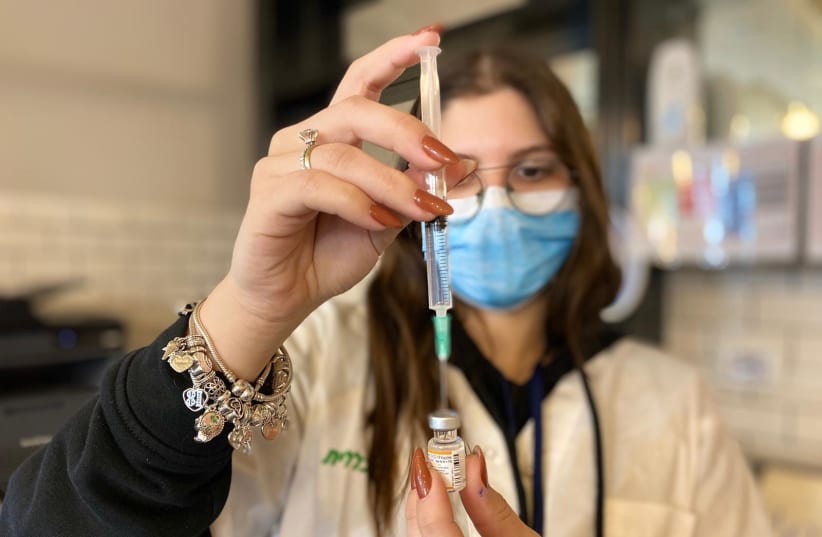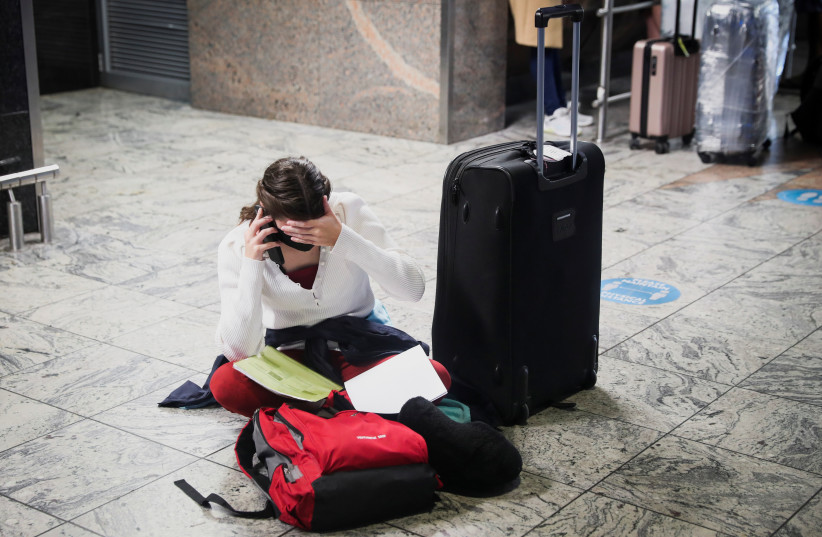Israel intends to donate a “very significant” number of doses of coronavirus vaccines to African countries, Health Minister Nitzan Horowitz said Tuesday.
“It is a global pandemic and we must deal with this crisis from a global perspective,” Horowitz said.
The move comes after the development of the Omicron variant in South Africa, where less than 25% of the country is vaccinated. In general, only around 6% of the continent has been inoculated. In some African countries, less than 1% of citizens have had the jab.
“I welcome the decision to give vaccines to the Third World,” said Prof. Dan Turner, deputy director-general for research and development and innovation at Shaare Zedek Medical Center in Jerusalem, who has been advocating for Israel to provide these vaccines.
“This transfer needed to be done a long time ago, but better late than never,” Turner continued. “We need to learn to care for weak populations that do not have resources without any immediate retribution. The Omicron variant should serve as a reminder that if we care for others, in the end we benefit too.”
Israel launched its vaccination campaign on December 20, and has since then administered more than 16 million doses, including four million third shots.
The country came under fire from the World Health Organization for giving third doses to its population despite scientific research proving that the Pfizer mRNA vaccines wane after around six months, while in some countries healthcare workers and the elderly have not received any protection.
To help facilitate equitable access to and distribution of COVID vaccines, the WHO partnered with UNICEF, the GAVI Vaccine Alliance and the Coalition for Epidemic Preparedness Innovations to create the COVAX Global Vaccine Facility. However, donations to COVAX have lagged and the program has shipped only around 400 million doses of vaccines globally – significantly less than the 1.9 billion doses it hoped to provide this year.
The Omicron variant highlighted what the WHO has been stressing: “No one is safe from COVID-19 until everyone is safe,” because the more the virus replicates the more likely it is to mutate.
“As I have said many times, the longer we allow the pandemic to drag on – by failing to address vaccine inequity, or to implement public health and social measures in a tailored and consistent way, – the more opportunity we give this virus to mutate in ways we cannot predict or prevent,” said Dr. Tedros Adhanom Ghebreyesus at a COVID-19 information session for member states on Tuesday in Geneva. “The more opportunity we give this virus to mutate in ways we cannot predict or prevent.”
Also Tuesday, the Prime Minister’s Office launched a Twitter account called Israel Pandemic Info Center (@PandemicInfoIL) to share information on Israel’s insights from fighting COVID-19.
The IPIC will share information provided by Israel's Health Ministry, as well as information in other areas, such as education, economy, logistics and more.
“The world has shown great interest in Israel’s lessons and experiences in combating COVID-19, and Israel is eager to share our know-how with the world. Together, the global community has a greater chance of combating COVID than we would if we were to take it on alone," Prime Minister Naftali Bennett said.
Its tweets thus far have included an infographic on the steps Israel has taken to battle the Omicron variant, such as closing Israel’s borders and accelerating its booster and children’s vaccination campaigns, and a photo of Bennett on a video conference with Austrian Chancellor Alexander Schallenberg and Czech Prime Minister Andrej Babis to discuss the pandemic.
Schallenberg initiated the phone call in order to learn how Israel has been combating the new variant and encouraging its population to get vaccinated.
The leaders shared their insights and challenges, the Prime Minister’s Office said.
Bennett said pushing for booster shots is important because it works in less than a week, and because people who only got jabbed twice are far more likely to catch COVID-19.
“People who haven’t gotten vaccinated at this point, two years into the pandemic, will be hard to convince,” Bennett said. “It is much easier to convince those who were already vaccinated twice to do it a third time.”
Bennett said the phone call was very important and a chance to learn from other leaders.
“Coronavirus, especially the new variant, is a threat on all of our countries and the entire world,” he stated. “When we work together on the matter, we are much more effective. Together, we can protect our countries, our people and our economies.”

